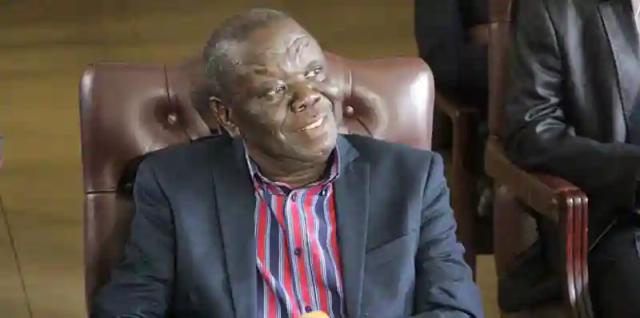Tsvangirai Did Not Write Newspaper Articles Exposes Journalist

Journalist James Rose has revealed that he wrote articles for the late MDC-T founding leader Morgan Tsvangirai. The articles which were published under Tsvangirai’s name were approved by the late former Prime Minister and coordinated by Eliphas Mukonoweshuro. The revelation by Rose has raised questions if President Emmerson Mnangagwa employed a ghostwriter to write an article that appeared in The New York Times under his name recently.
Rose narrates a situation where he wrote an article during the 2008 election runoff that was published in the British newspaper The Guardian but Tsvangirai later called for it to be pulled down stating that he had not approved it. The article called on the international community to intervene to protect the people of Zimbabwe. Below is an extract of how Rose says he felt when Tsvangirai denied ever approving the article:
An email from The Guardian later in the morning informed me that Tsvangirai’s office was saying the article was “wrong” and “causing problems.” The Comment page editor was in a tizzy and the newspaper ethics committee had been mobilized. I felt crushed.
FeedbackMy first impulse was to check everything. Doing so was important for the credibility of Tsvangirai, who, as the only viable opposition to Mugabe, was crucial to Zimbabwe’s future. There had to be an explanation. The PR in me kicked in: We needed to find a credible counter-narrative to remove the stain of potential disaster from me and from them.
But I was also searching myself, wondering if I had overstepped. Had I gotten something wrong? Was I in over my head? Was I a naive do-gooder? I had never even been to Zimbabwe. What right did I have to wade into the country’s crisis, imperiously assuming it needed my help? Could I, far removed in my little office on the other side of the world, through my actions cost innocent lives?
I was aware that Tsvangirai was regularly accused of being a Western lackey, a claim fomented by Mugabe himself. This snafu was going to make him look like a puppet with his strings exposed.
And, professionally, this was possibly fatal. Could I recover?
I told my editor at The Guardian that I stood by my work and my belief that it had been approved by Tsvangirai. I vowed that it was my belief the article was authentic. I argued that he had called for peacekeepers before.
Brooks told me they would have to pull the article online and issue an explanation. I was told the paper’s then-reader’s editor, Siobhain Butterworth, would require an interview with me for an article she was writing on the matter.
Overnight on June 25, The Guardian Letters page ran a statement from Tsvangirai. Its opening paragraph read, “An article that appeared in my name, published in The Guardian…did not reflect my position or opinions regarding solutions to the Zimbabwean crisis. Although The Guardian was given assurances from credible sources that I had approved the article this was not the case.”
While the letter’s explanation of Tsvangirai’s position seemed based more on semantics than any definitive difference to the op-ed, I died a little with each word I read.
More: CJR
Tags
0 Comments
Leave a Comment
Generate a Whatsapp MessageBuy Phones on Credit.
More Deals





